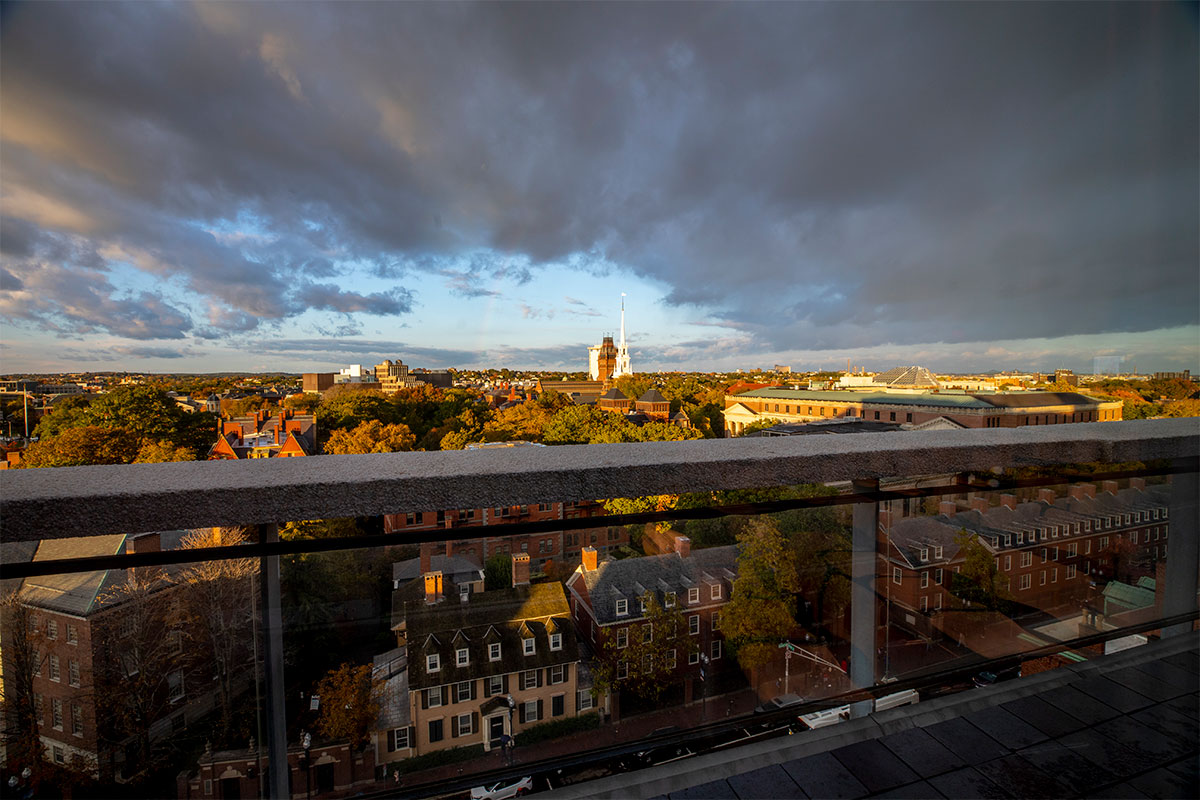
Harvard University’s campus.
Harvard file photo
7 chosen for Motsepe Presidential Research Fund award
Funds will support projects that advance challenges and opportunities facing Africa
Seven projects have been selected as the 2024 awardees for the Motsepe Presidential Research Accelerator Fund for Africa, announced the Office of the Vice Provost for Research and the Office of the Vice Provost for International Affairs, in collaboration with the Harvard University Center for African Studies.
The primary purpose of the fund is to support faculty-led and student-driven research projects that focus on advancing key challenges and opportunities facing Africa. Following the success of the first round of awards made during the 2020-21 academic year, the Motsepe Foundation has doubled its commitment, enabling the fund to add projects falling within the STEAM rubric (the application of the arts and humanities to science, technology, engineering, and mathematics research). Now in its fourth year, the fund has garnered interest from faculty across the University.
“We were thrilled with the exceptional quality of all proposals we received, and the breadth of disciplines represented within them,” said John Shaw, vice provost for research, Harry C. Dudley Professor of Structural and Economic Geology, and professor of environmental science and engineering. “We are so glad to see the sustained interest in this fund, year after year, and I eagerly anticipate the research impacts of this year’s awards.”
Mark Elliott, vice provost for international affairs and Mark Schwartz Professor of Chinese and Inner Asian History, agreed. “I am delighted to see how the Motsepe Fund continuously fosters a wide range of scholarship and enduring research partnerships between Harvard-based scholars and colleagues at African institutions,” he said.
Since its inception, the fund has supported proposals by primary investigators from six of the University’s Schools, including the Faculty of Arts and Sciences, the Harvard John A. Paulson School of Engineering and Applied Sciences, the Harvard T.H. Chan School of Public Health, the Harvard Graduate School of Design, the Harvard Law School, and Harvard Medical School. Another three Schools have been represented by co-investigators or collaborators on funded projects: Harvard Kennedy School, Harvard Business School, and Harvard Graduate School of Education.
The seven projects selected this year for awards from the Motsepe Presidential Research Accelerator Fund for Africa are:
“Towards a Cocoa Producer-Focused Climate Policy in Côte d’Ivoire and Ghana” By Daniel Agbiboa, assistant professor of African and African American studies, Faculty of Arts and Sciences and Carla Martin, lecturer in the Department of African and African American Studies, Faculty of Arts and Sciences; with co-investigators Albert Arhin (Kwame Nkrumah University of Science and Technology), Amanda Berlan (University of Leicester), Jean-Luc Kouassi (Institut National Polytechnique Félix Houphouët-Boigny), and Michael Odijie (University College London) and collaborators Tawiah Agyarko-Kwarteng (Côte d’Ivoire and Ghana Cocoa Initiative), Alex Arnaud Assanvo (Côte d’Ivoire and Ghana Cocoa Initiative), Andrews Addoquaye Tagoe (General Agricultural Workers Union of the Ghana Trades Union Congress), and Jose Lopez Ganem (Fine Cacao and Chocolate Institute)
“Service Delivery Redesign for Maternal and Newborn Health in Kakamega County, Kenya” By Kevin Croke, assistant professor of global health, Harvard T.H. Chan School of Public Health; with collaborators Caroline Mackenzie (Ipsos Kenya), Kennedy Opondo (Chan School of Public Health), and Margaret Kruk (Chan School of Public Health)
“Holy Places and Shaded Spaces: Imagining a Role for Religious Spaces in Climate Change Adaptation across Four African Cities” by Gareth Doherty, associate professor of landscape architecture, Harvard Graduate School of Design; with co-investigators Jacob Olupona (Faculty of Arts and Sciences) and Francesca Benedetto (Graduate School of Design), and collaborators Ikram Saïdane (Institut Supérieur Agronomique de Chott Mériem), Tunji Adejumo (University of Lagos), Dennis Kinyanjui Karanja (Jomo Kenyatta University of Agriculture and Technology), and Goabamang Lethugile (University of Botswana)
“Telemedicine for Post-Cesarean Surgical Site Infection Diagnosis in Rural Rwanda” by Bethany Hedt-Gauthier, associate professor of global health and social medicine, Harvard Medical School; with co-investigators Adeline Boatin (Massachusetts General Hospital), Vincent Cubaka (Partners In Health, Rwanda), Ignace Kabano (University of Rwanda), Rich Fletcher (Massachusetts Institute of Technology), and Milind Tambe (Harvard John A. Paulson School of Engineering and Applied Sciences)
“Impact of Arbovirus infection on Infant Outcomes in Nigeria” by Phyllis Kanki, Mary Woodard Lasker Professor of Health Sciences, Chan School of Public Health; with co-investigators Atiene Solomon Sagay (Jos University Teaching Hospital, University of Jos), Olukemi Ige (Jos University Teaching Hospital), and Bobby Brooke Herrera (Rutgers University)
“Expanding Mental Health Interventions for Kenyan Youth: Scaling Up the Pre-Texts Arts-Literacy Intervention” by Doris Sommer, Ira and Jewell Williams Professor of Romance Languages and Literatures and of African and African American Studies, Faculty of Arts and Sciences; with co-investigators David M. Ndetei (University of Nairobi; Africa Mental Health Research and Training Foundation), Tom L. Osborn (Shamiri Institute), and Victoria Mutiso (Africa Mental Health Research and Training Foundation), and collaborator Brenda Ochuku (Shamiri Institute)
“A University of Ghana/Harvard Law School Agricultural Justice Clinic: Challenge and Opportunity” by Lucie White, Louis A. Horvitz Professor of Law, Harvard Law School




